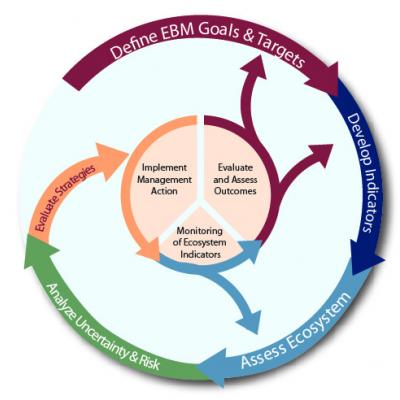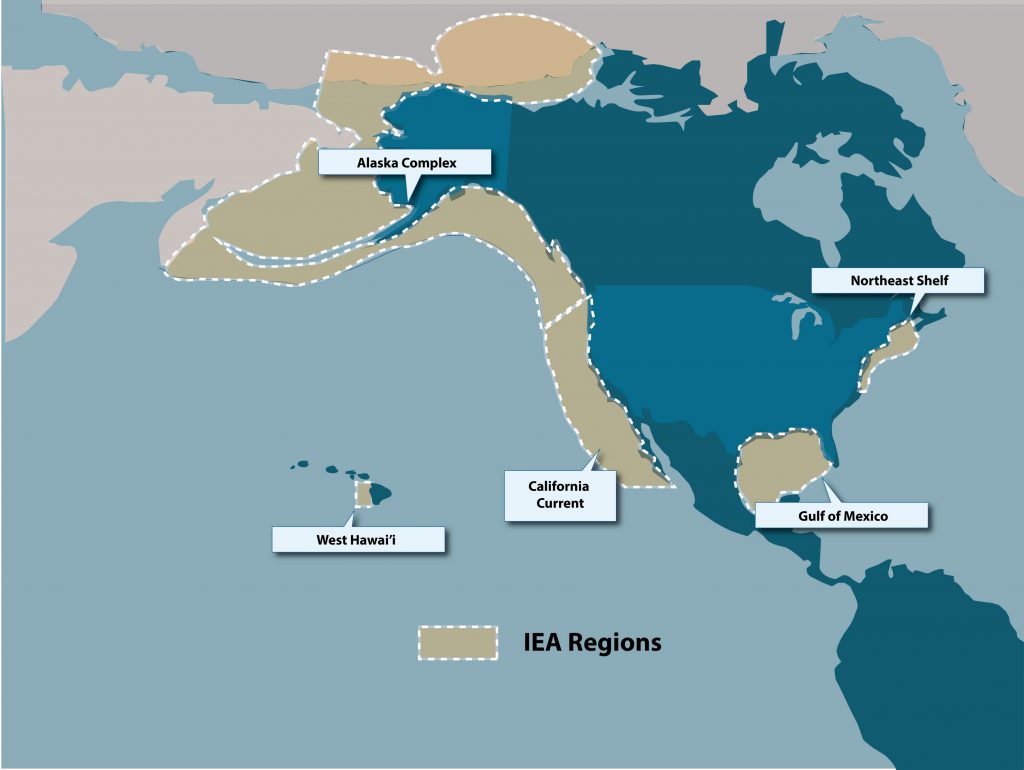
NOAA is celebrating 10 years of implementing Integrated Ecosystem Assessments (IEA), a science and management effort to integrate all components of an ecosystem, including human needs and activities, into the decision-making process. The IEA approach is a key part of NOAA’s ecosystem science enterprise, and provides the science necessary to carry out ecosystem-based management.
NOAA’s IEA program has published a special issue of the Coastal Management Journal, titled “Ten years of NOAA Integrated Ecosystem Assessment.” The issue consists of seven papers that highlight how, over the past 10 years, scientists have used the IEA approach to advance ecosystem-based management within and outside of the agency. Scientists have adapted the IEA approach to address a variety of issues from species, fleet, habitat, and climate interactions in mid-Atlantic fisheries management to incorporating a local community’s well-being into fisheries management in Sitka, Alaska. NOAA’s Ocean Service has incorporated IEAs in work related to marine sanctuary boundary expansion and sanctuary condition reports, harmful algal blooms, coral disease, and more.
- The introduction of the special issue provides a detailed description of each step of the approach.
- The second paper of the special issue offers perspectives on the origins of the IEA framework and the NOAA IEA program, and includes future recommendations from those who initially developed the approach.
- The third paper highlights five case studies that demonstrate how the IEA approach can be adapted to provide the ecosystem science, including social science, required to build resilient coastal ecosystems, communities, and economies.
- The fourth paper reviews how indicators were identified in case studies from seven different ecosystems over the first 10 years of the NOAA IEA program.
- The fifth paper provides a snapshot of the state of open science practices in IEAs across the United States.
- The Mid-Atlantic Fishery Management Council adapted each step of the IEA approach to address species, fleet, habitat, and climate interactions in fisheries under their management. The sixth paper details the process taken by the council to identify high-priority fisheries and their components.
- The seventh paper addresses the need to look beyond economic welfare of communities when evaluating the status of humans and ecosystems.
The guest editors for this special issue include personnel from NOAA’s Fisheries Office of Science and Technology, Northwest Fisheries Science Center, National Centers for Coastal Ocean Science, and Atlantic Oceanographic and Meteorological Laboratory. Looking forward, NOAA will continue to engage with scientists, stakeholders and other interested parties to build off the success of the past 10 years in implementing IEAs. Learn more about IEA efforts here.

